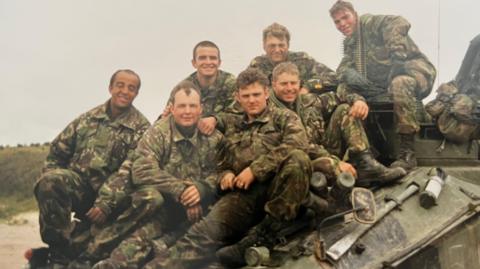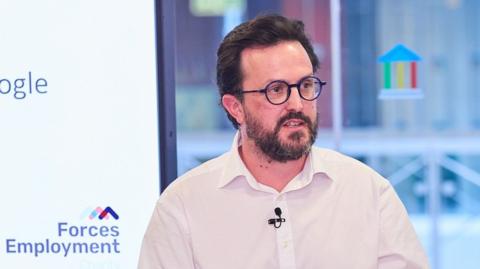Leading a foot patrol through an empty village in a conflict zone might seem a world away from working in a security operations centre (SOC) in a major enterprise.
But, says former infantryman James Murphy, when you see a trashcan by the side of the road, and you know no-one is collecting rubbish that day: "The spider hairs on the back of your neck start tingling."
And that vigilance, says Mr Murphy, now director of veterans and families at the Forces Employment Charity, is precisely the sort of instinct the cybersecurity industry covets.
Cyberattacks are a fact of life for organizations worldwide, whether straightforward cybercrime or politically motivated.
The UK's armed forces recently launched an accelerated training program for recruits to bolster its cyber capabilities, with successful candidates in line for one of the highest armed forces starting salaries.
But there has long been a steady march in the other direction.
In the UK, the Forces Employment Charity's TechVets programme typically helps 15 to 20 people a month into employment, with between 40 and 60% of those head into cybersecurity.
And that is a much needed supply of workers - there is a global shortfall of four million cyber professionals, according to the World Economic Forum.
The need for those workers has been underlined in the UK, where operations at two leading retailers have been disrupted by hackers.



